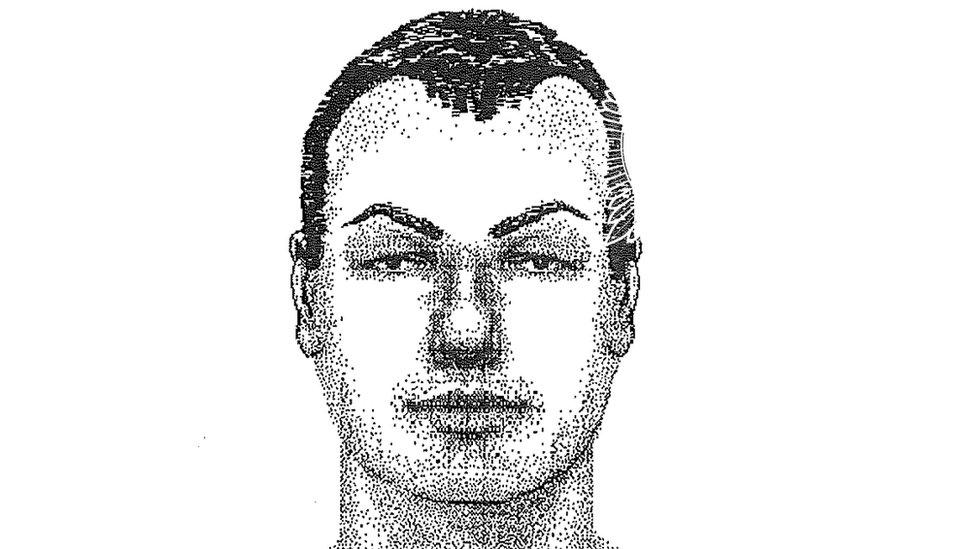Rapist jailed 30 years after attack on Cardiff dog walker
- Published
Anthony Carling's victim recalls the day she was raped
A man has been jailed for raping a woman who was walking her dogs in a park almost 30 years ago.
Anthony Carling, 63, from Barry, Vale of Glamorgan, dragged the woman into bushes and raped her in Harlequin Field in Roath, Cardiff, in 1991.
He admitted rape and attempted rape and was sentenced to 12 years in prison at Newport Crown Court on Friday.
He was arrested after a semen stain on the victim's coat was examined using new technology.
In 2013 Carling provided a DNA swab for an unrelated matter and officers were able to link him to the crime.
Prosecutor Marian Lewis said the 40-year-old woman, who was not known to her attacker, was leading two dogs through the park and heard "the sound of footsteps walking behind her".
She turned around and asked Carling: "What do you want?' He replied: 'I want you'".
Carling punched the woman to the floor and dragged her into a field where he raped her.
She handed her clothes to police - but officers were unable to trace Carling until the case was reopened years later.
In a victim impact statement the woman said she has been "fit and healthy" before the attack and held down two jobs - but Carling's rape "ended" her life.
She said: "This horrendous offence destroyed my life. They say life begins at 40 but my life ended at that age."

This e-fit was created by police almost 30 years ago
The court heard Carling was jailed in 1989 for following a woman down a lane and indecently assaulting her.
Judge Daniel Williams said the rape happened within a year of Carling being released from prison for that attack.
He said: "You were out looking for your next victim, but determined this time to do even greater harm than before."
Speaking after sentencing, Det Ch Insp Mark O'Shea, head of South Wales Police Specialist Crime Review Unit, described the crime as "every woman's worst nightmare".
He said the "extensive investigation" carried out at the time included house-to-house inquiries, media appeals and producing an e-fit but a suspect was never identified.
Carling had "shown no remorse" and "only pleaded guilty because of the strength of the evidence," he added.
He added: "We remain committed to investigating undetected serious crimes and often re-look at cases as forensic science develops."